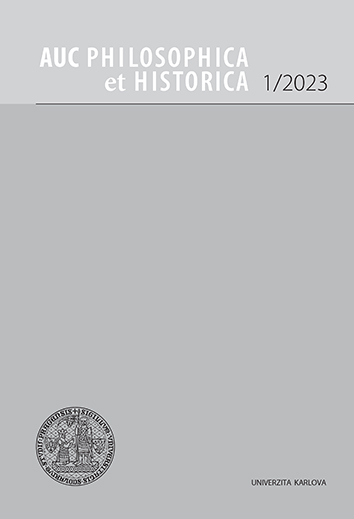AUC Philosophica et Historica je víceoborový akademický časopis zaměřený na humanitní a společenskovědné obory (filozofie, psychologie, pedagogika, sociologie, obecné, české a hospodářské dějiny, pomocné vědy historické a archivnictví, etnologie).
Časopis je indexován v databázích CEEOL, DOAJ a EBSCO.
AUC PHILOSOPHICA ET HISTORICA, Vol 2013 No 2 (2013), 79–90
K ontologickému pojetí kultury
Josef Šmajs
DOI: https://doi.org/10.14712/24647055.2014.4
zveřejněno: 11. 01. 2015
Abstract
The author interprets culture from the evolutionary ontology’s viewpoint. He notes that culture is a young, artificially created system, inside an older, naturally created system of nature. Culture originated as a human-constructed non-biological system with its own internal information, which is not genetic information but conceptual information, a spiritual culture. Therefore culture is not a direct continuation of natural evolution – its relation to nature is ontically opposite. The author describes two main processes of cultural structures’ origination by means of human activity: 1. An indirect process, when these structures originate without a scenario, i.e. by means of a historical succession (e.g. social institutions and ethnic languages); 2. A direct process when they originate according to a scenario, i.e. as structures with specified information (e.g. the material culture and technology). He also reminds that social wealth originates only at the expense of the natural wealth, i.e. at the expense of the evolutionarily originated inanimate and animate systems of the planet. Yet human species is not responsible for nature, which it had not created and which it does not fully understand. It is responsible for culture, its own creation, which ravages the Earth in an irreversible way.
vychází: 2 x ročně
ISSN: 0567-8293
E-ISSN: 2464-7055
